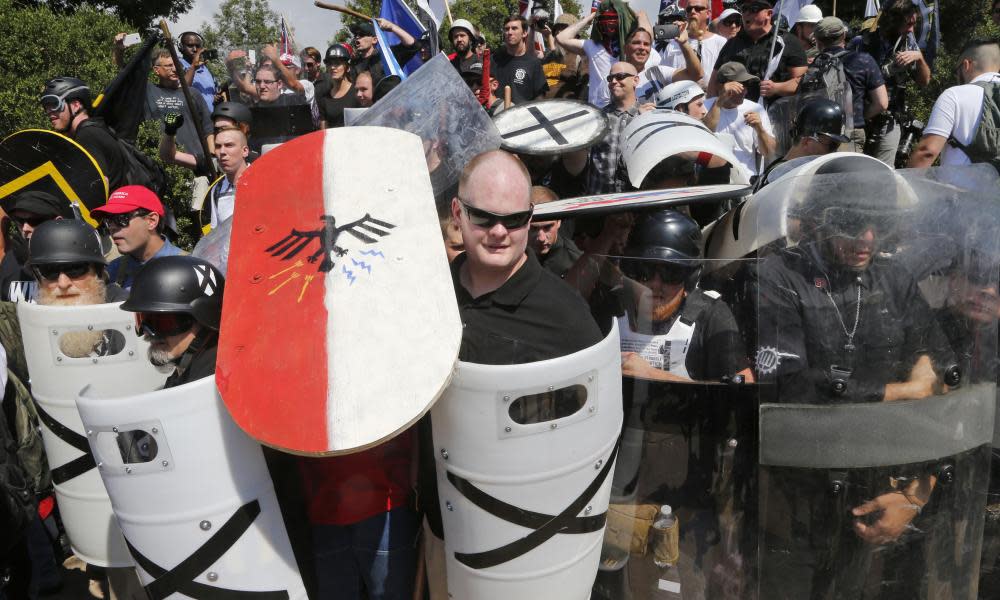Key white supremacist found living in Montreal exposes reach of hate groups

Police in Canada have launched an investigation after it emerged that one of North America’s most influential white supremacists lives in Montreal and has been organising a small network of neo-Nazis in the city since 2016.
An investigation by the Montreal Gazette unmasked the neo-Nazi propagandist who goes by the pseudonym Zeiger and is best known for his writings on the extreme rightwing news site Daily Stormer. In its report earlier this month, the paper identified him as a local IT consultant in his 30s named Gabriel Sohier Chaput.
The revelation made waves across North America, and cast a spotlight on the more than 100 hate groups and dozens of far-right figures in Canada.
“Zeiger is one of the far right’s most credible, most competent and one of the most influential radio personalities and propagandists out there,” said Ryan Lenz of the Southern Poverty Law Center, which monitors hate groups throughout North America. “He’s proven to be a very effective presence and personality amid this rise in the alt-right.”
After emerging as a key figure in the movement some four years ago, Zeiger attended last year’s white-supremacist rally in Charlottesville, Virginia., with a small group from Quebec.
Between August 2016 and January 2018, he also coordinated meetings in Montreal with 10 to 15 people who self-identified as alt-right, Nazis and white supremacists, among other labels. Only men were allowed to attend the group’s official meetings.
The Gazette’s investigation built on research done by anti-fascist activists who had combed through Zeiger’s online profiles and high school yearbooks to ascertain his identity. Key information also came from Zeiger himself, after he mentioned in a podcast that he had attended high school in Montreal’s Outremont borough.
The paper repeatedly reached out to Sohier Chaput and Zeiger for comment, but received no response.
After Zeiger’s identity was revealed, police in Montreal said their hate crimes unit was looking into the information. Officials with the force declined to offer more details when asked if the unit was investigating any particular individual or if charges were being considered.
The Southern Poverty Law Center said that since being unmasked, Zeiger has gone quiet. “We know that he seems to be in hiding,” said Lenz.
He said he wasn’t surprised to hear that one of the alt-right’s most influential had been found north of the border. “To see it pop up in Canada is disheartening and sad, but it is just another chapter in this long story of these ideas slowly sweeping the planet,” he said. “These countries are just a piece in a global puzzle of extremism.”
The revelation comes as academics, journalists and researchers join forces to launch Canada’s first organisation dedicated to monitoring and exposing far-right groups.
“I think there is this sense of Canadian exceptionalism that, for example, we’re not as bad or as racist as our neighbours down south,” said Evan Balgord, the executive director of the recently launched Canadian Anti-Hate Network.
The organisation currently has between 100 to 130 hate groups on their radar in Canada, compared to about 954 organisations that are being tracked in the US. “We have a tenth of the population, we also have a tenth of the number of hate groups,” said Balgord. “So proportionally it’s a similar size problem.”

 Yahoo News
Yahoo News 
